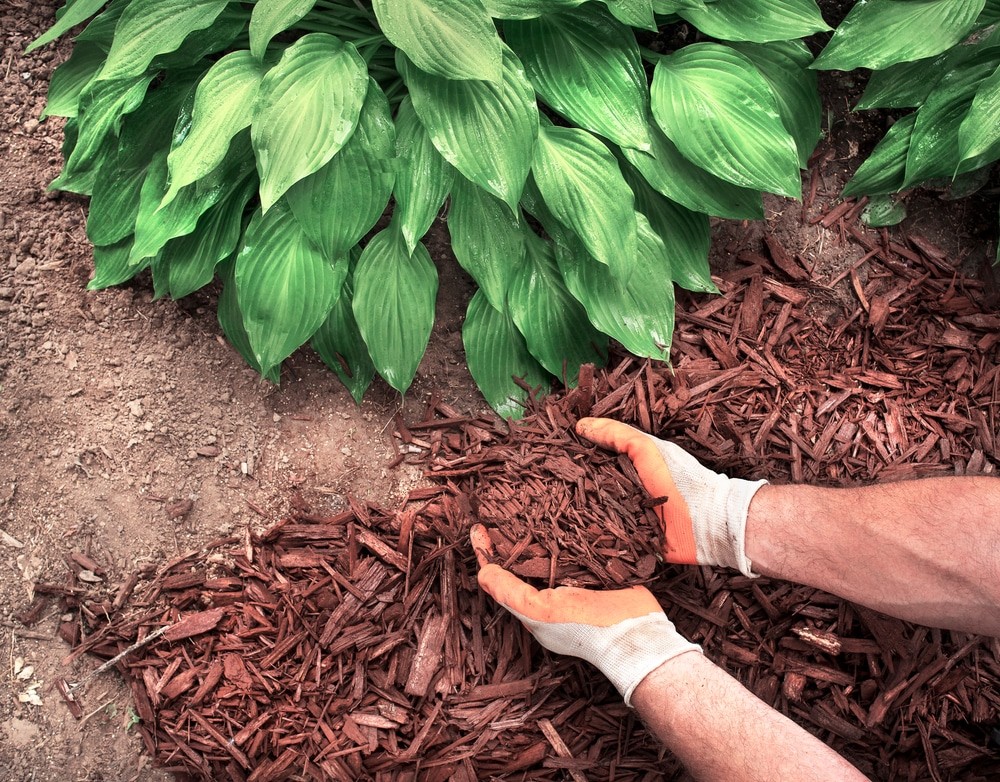Mulching saves time, energy and watering, but it also feeds the soil (and therefore the plants), because, as any good gardener knows, the soil is alive.
Contents
Soil life and symbiotic relationships
The soil is far from being sterile. Wood that has fallen to the ground, organic mulch or RCW produce, when they decompose, fungi whose long filaments go to meet the roots of neighboring plants with which they enter into a symbiotic relationship: this is what we call mycorrhizae.
A “win-win” relationship is established: on the one hand, the “connected” plant distributes to the fungus the sugar it produces through photosynthesis, and on the other hand, the fungus, which has a great capacity to capture mineral salts from the soil, redistributes them to the plant: it is therefore a valuable aid for its development and growth.
Is all organic matter good to mulch?
The gardener can mulch with all types of plants, including softwood waste, bark, brambles in balls or chips, young or old branches…
Ideally, a balanced mulch is a diversified mulch.
What precautions should be taken with grass clippings?
Managing grass clippings is always complicated. Of course, they can be used as mulch. They can also be composted. But in both cases, they must be mixed with other organic materials to prevent them from becoming compacted and forming impermeable patches.
The easiest way to recycle grass clippings is to mulch them; that is, to leave them on the mowed lawn, after they have been cut very fine by the mower. Thus, they feed the soil (and then the lawn) by decomposing
Maintenance of a mulch
Maintenance is limited to keeping it always, and in any season, at 10 cm thickness. It is therefore important to remember to replenish it as it decomposes.
Then, to perfect the visual aspect, you may have to “clean” it, but this is, of course, not a necessity.
The gardener’s work is essentially upstream, but what a time saver afterwards!

Why should you Mulch Your Soil?
Mulch is a soil management practice in which a material is applied to the soil to reduce water loss and control weeds. Mulch reduces garden maintenance and increases the growing season. It can be made from a wide variety of materials including bark, paper, plastic, general purpose compost and green waste.
Compost is the most common mulch material used in gardens, but there are many benefits to using other types of mulch. Choosing the right type of mulch for your garden can enhance your plants’ growth and reduce maintenance.
Soil erosion is a major concern when growing plants in gardens. This happens when soil moves from one area of a garden to another or into rivers, streams or lakes. Erosion leads to poor garden health and destroys valuable topsoil. Reducing erosion in your garden involves reducing water loss by closing off areas with low water content or by applying mulch.
Mulch reduces erosion by slowing down soil movement and blocking weeds from uprooting plants during rainy seasons. Using suitable mulches also improves hydration levels in the soil as it slows down raindrops so that it doesn’t cause excessive moisture loss. Applying bark or wood chip mulches at the right time will improve hydration levels significantly.
Mulching increases the amount of moisture retained in the soil. This helps prevent root systems from drying out or killing plants during wet seasons. Increased moisture retention reduces weed growth as it helps to keep weed seeds covered with soil and moistened enough not to die off easily.
It also delays weed growth as moistened soil stays close to the ground instead of creating pockets of air between the ground and the mulch layer that promotes root growths development
Mulch reduces compaction; this helps save on energy used when walking through gardens due to reduced impact on the ground’s surface. It also reduces heat buildup under foot leading to cooler nights for plant roots since plant roots grow closer to the ground when there is no mulch present
Application of suitable types of mulches have many benefits for growing vegetables and other plants indoors or outdoors in gardens . These include reducing erosion, increasing moisture retention, reducing compaction and saving water The only downside is that some materials used as mulches can contain harmful elements such as heavy metals from old paint or lead-acid batteries .
Therefore, you should thoroughly research different types of mulch before selecting one for your garden The above paragraphs summarize why you should apply a suitable type of mulch when gardening


